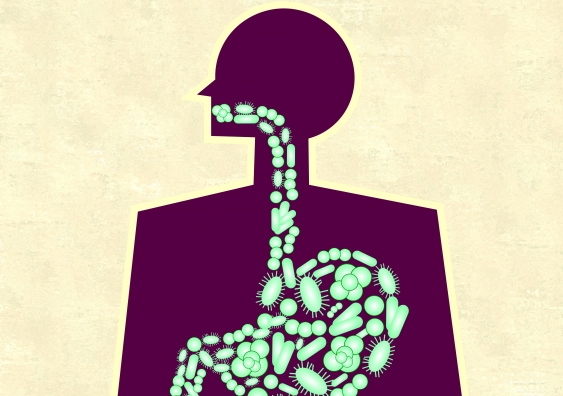UNSW researchers have observed how microbiota in the oesophagus is affected by a high-fat diet, depleting known beneficial bacteria and increasing the levels of “bad” bacteria.
The team’s paper, published in Scientific Reports, found a high-fat diet affects the microbiota in the oesophagus of rats.
First author Dr Nadeem Kaakoush says two other interesting things were observed.
“The high-fat diet drops the levels of Lactobacillus species, well known to be beneficial and form part of different probiotics,” he says.
“It gives us the idea that maybe we can counteract through probiotics the effects of unhealthy diets and obesity in the oesophagus as they are known risk factors for oesophageal disease.
“The other interesting observation was the increase of Fusobacterium species given that they have been associated with various diseases.”
Fusobacterium has been linked to oral disease like periodontitis, as well as appendicitis, inflammatory bowel diseases and, more recently, colorectal cancers.
Now, Dr Kaakoush says they have a reason to look more closely at whether they also play a role in oesophageal adenocarcinoma, and what’s known as the “cascade” of conditions that precede it.
Gastro-oesophageal reflux disease (GORD) occurs when stomach acid backs up into the oesophagus, over time damaging the oesophagus walls.
This can cause the oesophageal cells to be replaced by cells more like acid-resistant intestinal cells, a condition called Barrett’s oesophagus.
Oesophageal cancers are uncommon, occurring in 1300 people in Australia each year. However, the incidence of oesophageal adenocarcinoma is rising.
Dr Kaakoush, a Cancer Institute NSW Career Development Fellow, says his team has started observing the microbiome in the human oesophagus.
A study from Japan in late 2016 has already established that Fusobacterium in the oesophagus of oesophageal cancer patients is associated with shorter survival times.
“What we’re interested in now is seeing if we increase the Lactobacillus species in the oesophagus, whether that is beneficial, and if we increase Fusobacterium in the oesophagus, does that have negative consequences?” he says.
“The other thing is the damage to the lining of the oesophagus, and if we can connect that with the presence of Fusobacterium. That would be a pretty good indicator for us to say these bacteria are involved in this cascade.”


